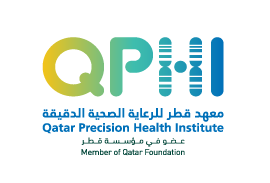
PPM 04-0311-200035
| Project Information |
|---|
Proposal Number : PPM 04-0311-200035 Program Cycle : PPM 04 Submitting Institution Name : Weill Cornell Medical College in Qatar Project Status : Award Active Start Date : 1/1/2021 Lead Investigator : Prof. Lotfi Chouchane Project Duration : 4 Year(s) End Date : 1/1/2025 Submission Type : New Proposal Title : Exploring Drug Resistance Mechanisms in Triple Negative Breast Cancers: From Patient Derived Organoids towards Precision Medicine |
| Project Summary | |||||||||||||||
|---|---|---|---|---|---|---|---|---|---|---|---|---|---|---|---|
Proposal Description: Triple-negative breast cancers (TNBCs) do not express estrogen receptor (ER), progesterone receptor (PR) and human epidermal growth factor receptor 2 (HER-2/neu)[1]. Nearly, 10–20% of newly diagnosed early breast cancers are TNBCs and in general have poorer prognosis when compared to other breast cancer (BC) forms. The therapeutic outlook for patients with TNBC is poor due to the lack of targeted therapies which could evoke a response. Chemotherapy, radiotherapy and surgery have all been tried in patients with TNBC with limited response or no response at all. The latter category of patients, termed ‘non-responders’ (nTNBC) subsequently progress to the terminal metastatic stage of the disease. The aggressive nature of TNBC and its associated poor prognosis compared to other BC types has been well-established [2]. Recent studies have highlighted that TNBC occurs more often in younger (under 40), African American and Hispanic/Latina women and those with BRCA1/2 mutations. Women of African descent have a higher rate of breast tumor recurrence than women of other races across all breast cancer subtypes [3]. Subsequent studies have suggested that these observed differences in clinical outcomes are likely to have developed from an interaction of environmental and genetic factors. No such studies have been carried out in women of Arab descent and further the question remains whether Qatari population carries any specific pathogenic variants in BRCA1/2 such ethnicity‐based BRCA mutation data need to be developed. The proposed study is expected to fill this gap by to defining the molecular profiles of primary tumors from patients with TNBC in the state of Qatar. Identification of drug targets based on genomic alterations by high-throughput sequencing is vital for personalized cancer care to patients, particularly for those with metastatic disease. To date, there are no targeted therapy options for patients with TNBC. The FDA approved immunotherapy drug atezolizumab (Tecentriq) in combination with chemotherapy agent nab-paclitaxel (Abraxane) works only for certain patients with advanced TNBCs. Reliance on conventional chemotherapy has not improved prognosis. The recently established, Patient Derived Organoids (PDOs) models have showed remarkable promise for modeling human tumors and revealing new biological insights for choosing most effective drugs and hold great promise in precision medicine[4, 5]. PDOs have the potential to be developed as human cancer models which can provide valuable information about personalized drug-response in patients with TNBC. Taken together, our primary objectives of the current proposal are to: (1) Genomic characteristics of TNBC from primary tumors detected in women of Arab descent: (2) Identify perturbed pathways with chemoresistance or response among included patients with TNBC, (3) Establishment of a living patient derived organoid biobank to aid targeted (personalized) therapy for newly diagnosed subjects. The successful completion of this project would advance our understanding of the primary and secondary driver gene mutations in TNBCs from women of Arab descent and ethnic based BRCA standard for Qatari population. This understanding will greatly help improve the prognosis and survival of TNBC patients in Qatar and in the wider region. Establishment of the PDOs biobank here in Qatar will provide therapeutic options in drug selection and impact outcome not just in TNBC patients but also among other patients with cancers refractory to other forms of treatment in the long run. Research Area Keywords: Triple-negative breast cancer; chemotherapy resistance; organoid; Arab; Sequencing Research Type Translational Research / Experimental Development
|
| Project Summary | |||||||||
|---|---|---|---|---|---|---|---|---|---|
|
| Personnel | ||||||||||||||||||
|---|---|---|---|---|---|---|---|---|---|---|---|---|---|---|---|---|---|---|
|

